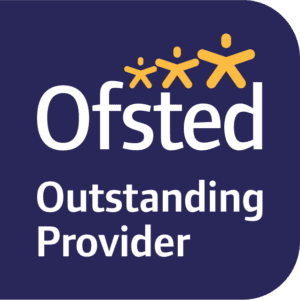Secondary English with QTS (11-16) PGCE
GOV.UK code: QXXX
If you think you could develop young people’s literary knowledge and unlock a love of language, you’re in the right place. Train to teach English to 11-16 year-olds and gain recommendation for Qualified Teacher Status (QTS).
Overview
| Course length: | (2025 and 2026) 1 year full-time 1 year full-time (2026 only) 2 years part-time |
|---|---|
| Start dates: | September 2025 September 2026 |
| Location: | Edge Hill University |
| Example offers: | 2:2 or above (or equivalent) in a relevant subject View full entry criteria |
| Subject(s): | Education and Teaching |
| Faculty: | Education |
| Department: | Secondary and Further Education |
Please note, the part-time route for this course is available from 2026 entry and is not available to international students.
Ready to change the way young people understand and use English? Want to develop their literary appreciation in an engaging way? Eager to grow your subject expertise? Training to teach English to secondary school pupils on our PGCE course could be your perfect next step.
You’ll learn to reflect on your own philosophy of teaching English, develop analytical skills and boost your own subject knowledge. With plenty of practical experience in planning effective lessons, you’ll also get lots of hands-on experience. At Edge Hill, our experts will introduce you to a range of exciting and interactive teaching methods, including the use of drama and ICT.
Confidence in the classroom
You’ll spend a significant proportion of your PGCE year on placement in a secondary school focusing on 11-16 teaching. Although you’ll only observe at the start, you’ll gradually get more opportunities to take the lead, helping you become more confident and more competent in the classroom.
Throughout your placement, you’ll be supported by your English tutor and school-based expert mentor. Listen to their advice about how to apply what you’ve learnt in seminars to the classroom. Turn to them whenever you need support or feedback.
Successful completion of the programme leads to a recommendation for Qualified Teacher Status (QTS).
If you have qualified teacher status (QTS), you’ll get a minimum starting salary of £31,650 (or more in London) as a primary or secondary school teacher in England, rising to £41,333 for more experienced teachers.
 Ofsted Outstanding Provider
Ofsted Outstanding Provider
Course features
-
Ofsted outstanding provider for Initial Teacher Education
-
Professional accreditation
-
Professional practice placements
-
International students can apply
What you'll study
At the start of your course you will undertake an audit of your subject knowledge. This way you can identify your areas of strength and those you need to develop.
We’ll help you understand how to incorporate lively, interactive techniques into your lessons to boost your students’ confidence and self-esteem.
Study essential educational theory. Explore innovative teaching and assessment methods, including group work, role play and focused literacy sessions. Discover different strategies to encourage students’ understanding and use of English, including using drama, film and ICT.
You’ll learn about the curriculum, including the latest ICT tools and software and how to plan a lesson effectively. To prepare for life as a teacher, you’ll discover more about professional roles and responsibilities, as well as improving your academic skills.
How you'll study
A combination of academic study, group discussion and reflection, presentations and simulations, and practical work-based learning in the classroom will give you all the knowledge and skills you need to become a creative and innovative teacher. The programme aims to develop a reflective and critically analytical approach to education.
You will also undertake Intensive Training and Practice (ITAP) as a specific and focused element of our teacher training curriculum. This is designed to consolidate your knowledge of effective teaching, and enable you to rehearse and obtain feedback from experts on your practice. Our ITAPs are designed to utilise the latest research and technology as well as draw on the outstanding mentors, tutors, and teacher expertise from across our partnership.
Over the course of your training, you will have the opportunity to participate in several days of Intensive Practice focusing on aspects of pivotal practice such as; behaviour management, scaffolding, professional behaviours and questioning.
During periods of ITAP, your timetable may differ and you may be required to attend campus and/or a placement on days outside of the usual pattern.
You will undertake extensive placements in schools, putting your training into practice through assisting in and taking responsibility for classes, and working alongside mentors and peers to further your professional development. The focus initially is on observation and supporting teaching and learning. Your teaching timetable will increase as your training progresses and you become more confident and competent in the classroom.
How you'll be assessed
You will be assessed, through a balanced combination of coursework and portfolio assessments, against both academic criteria and the Standards related to QTS. Various other tasks will enable you to show your competence in ICT, numeracy and literacy and other areas of English.
Your professional practice will conclude with a final viva that will allow you to demonstrate appropriate achievement against the Teachers’ Standards in order to allow us to make a recommendation for QTS.
Who will be teaching you
The Faculty of Education has been at the forefront of teacher education for over 135 years and today enjoys the enviable position of being one of the country’s leading providers of education, training and research for the children’s workforce.
Friendly, supportive tutors from across the Faculty of Education, including English specialists, Drama experts and ICT practitioners, will give you a thorough knowledge of current methods of teaching English, and guidance in the practical application of that knowledge.
The Edge Hill lead mentors and mentor leadership team play an important part in your teacher training as experts in their field. They have a deep knowledge of the trainee curriculum and support trainees and mentors to make progress providing guidance and support on aspects of the curriculum and assessment.
Entry criteria
To join this PGCE, you will be expected to have:
- A degree equivalent to UK first-class or second-class honours (2:2 or above) in a relevant subject. Other subjects may be considered if you have an A Level in a relevant subject (or equivalent qualification) and a willingness to engage in a subject knowledge enhancement course, subject to availability.
- GCSE English Language or English Literature and GCSE Mathematics at Grade C or Grade 4 or above (or equivalent qualification)
- Satisfactory levels of information and communications technology competence
- A commitment to, and understanding of, secondary education, demonstrating the personal attributes, values and motivation required to train as a teacher.
Please note, for the purposes of initial teacher training, level 2 literacy and numeracy qualifications are not considered as equivalent to GCSE Grade C or Grade 4 in English Language or English Literature and Mathematics.
An interview forms part of the selection process, which can be conducted online or face to face.
If you accept a formal offer from Edge Hill University you will be required to meet the Department for Education’s standards for physical and mental fitness to teach and clearance to work with children. Further information, including a Declaration of Health questionnaire and details of how to apply for a Disclosure and Barring Service (DBS) Enhanced Disclosure will be sent to you after you have firmly accepted an offer.
English language requirements
International students require IELTS 6.5, with a score no lower than 6.0 in each individual component, or an equivalent English language qualification.
If your current level of English is half a band, one band, or one-and-a-half bands lower, either overall or in one or two elements, you may want to consider our Pre-Sessional English course.
How to apply
Apply full-time
Read our guide to applying for PGCEs and Postgraduate Teacher Training to find out more about the application process.
International
Please see our international student pages for further information about how to apply as a prospective international student.
The part-time application link for 2026 entry will be added when available.
Please note, the part-time route for this course is available from 2026 entry and is not available to international students.
Should you accept an offer of a place to study with us and formally enrol as a student, you will be subject to the provisions of the regulations, rules, codes, conditions and policies which apply to our students. These are available at www.edgehill.ac.uk/studentterms.
There’s plenty of opportunities to come take a look around campus. Attend one of our open days to see what life at Edge Hill University is all about.
Book an open day
Facilities
 The Faculty of Education enjoys the enviable position of being one of the country’s leading providers of transformative education, training and research for the teaching and education workforce. Housed in a state-of-the-art £9m building, the Faculty of Education enjoys a stunning setting from both its lakeside and piazza buildings.
The Faculty of Education enjoys the enviable position of being one of the country’s leading providers of transformative education, training and research for the teaching and education workforce. Housed in a state-of-the-art £9m building, the Faculty of Education enjoys a stunning setting from both its lakeside and piazza buildings.
Facilities in the lakeside building include a 300-seat lecture theatre, five well-equipped ICT suites, and 18 teaching rooms complete with the latest technology.
Our nearby piazza building houses our Research Hub and our Secondary and Further Education department including a lecture theatre and a number of seminar rooms.
Where you'll study
Finance
Tuition fees
UK Full-Time
£9,535
for the course
International
£17,000
for the course
EU/EEA and Swiss students who have settled or pre-settled status under the EU Settlement Scheme, as well as Irish nationals, may be eligible for the UK tuition fee rate.
Financial support
Subject to eligibility, UK students joining this course can apply for a Tuition Fee Loan from the Government to cover the full cost of tuition fees. UK students enrolling on the course may also be eligible to apply for additional funding to help with living costs. If you are a UK student joining this PGCE in academic year 2025/26, you may be eligible to receive a Department for Education bursary worth £5,000 if you have a first class, 2:1 or 2:2 honours degree, or if you have successfully completed a PhD or Masters award.
Please view the PGCE fees and funding guide for comprehensive information about the financial support available to eligible UK students.
Scholarships
We offer a range of scholarships, which celebrate the determination, commitment and achievement of our students. Many of our scholarships are awarded automatically. There are some however, where you will need to be involved in an application or nomination process. To find out more about our scholarships and check your eligibility, please visit our dedicated scholarships pages.Money Matters
Please view the relevant Money Matters guide for comprehensive information about the financial support available to eligible UK students.EU/EEA and Swiss students who have settled or pre-settled status under the EU Settlement Scheme may be eligible to apply for financial support. Irish nationals can ordinarily apply to Student Universal Support Ireland (SUSI). If you are an EU student who does not have settled or pre-settled status, or are an international student from a non-EU country, please see our international student finance pages.
Your future career
This PGCE is accredited by the Department for Education. Successful completion of the programme will enable you to gain recommendation for Qualified Teacher Status (QTS).
You’ll be well placed to progress into employment as an early career teacher of English at secondary school level. Our proactive careers service can help you to find job vacancies. They also offer in-depth advice on teacher job applications and interviews.
With plenty of academic and professional experience, you might decide to continue your studies with a MA or MRes. After that, you might even decide to do a PhD.
Course changes
Every effort has been made to ensure the accuracy of this information, however our courses are subject to ongoing review and development. Changing circumstances may necessitate alteration to, or the cancellation of, courses.
Changes may be necessary to comply with the requirements of professional bodies, revisions to subject benchmarks statements, to keep courses updated and contemporary, or as a result of student feedback. We reserve the right to make variations if we consider such action to be necessary or in the best interests of students.










